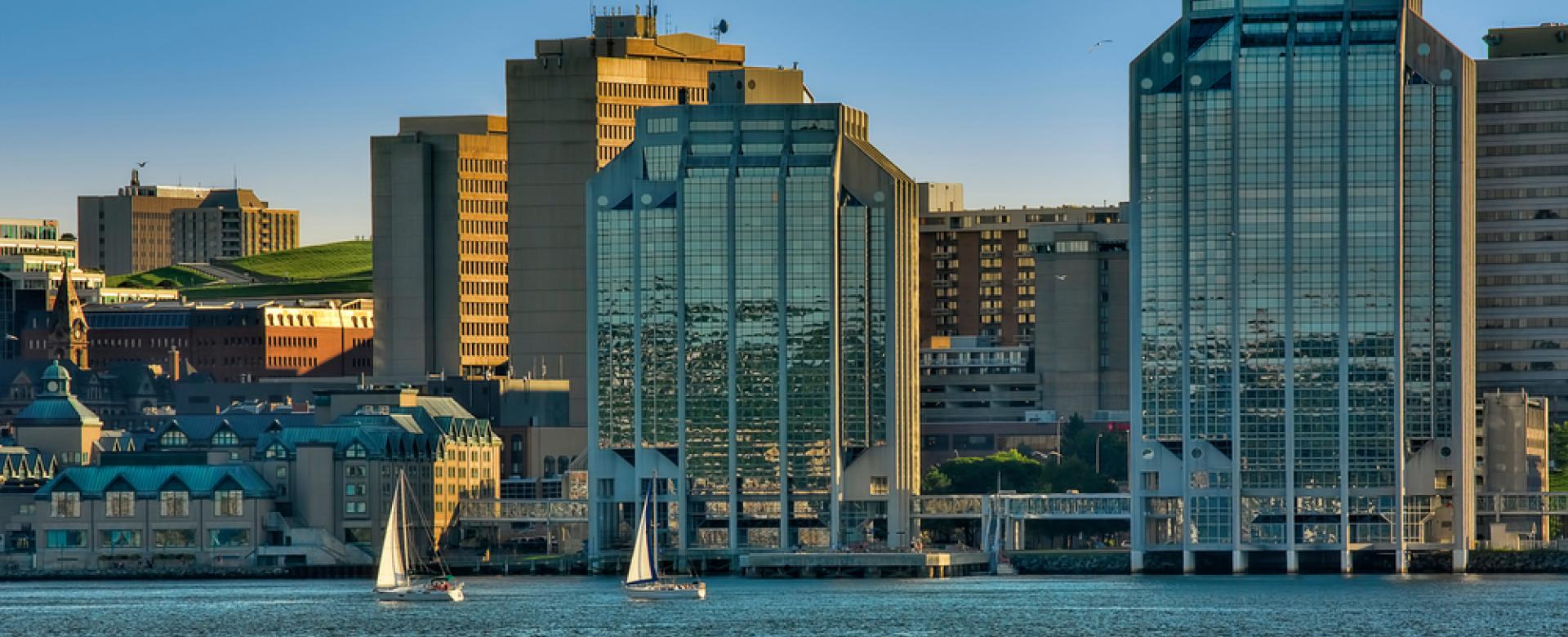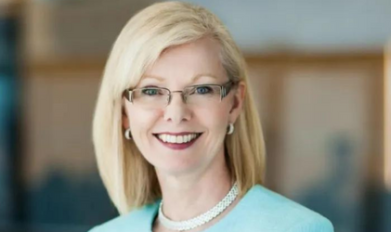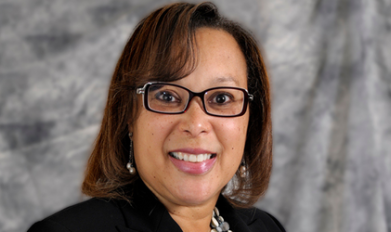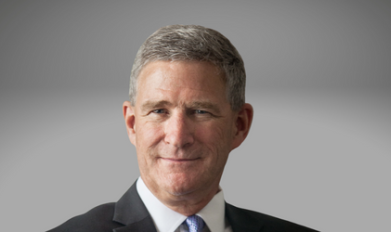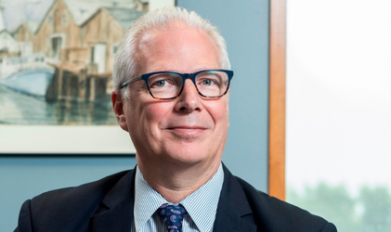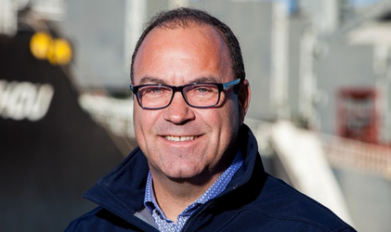Enhancing Atlantic Canada’s economy through the strengthening of our workforce
Anna Stuart interviewed Karen Oldfield, President and CEO of the Halifax Port Authority, in fall 2019 to gain insights as to how Atlantic Canada can become more globally competitive and strengthen our economic outlook.
As the outgoing President and CEO of the Halifax Port Authority after more than 17 years, Board Chair of Saint Mary’s University, and Past Chair of the International Women’s Forum of Canada, Oldfield has been a champion of entrepreneurship, education, and elevating more women to executive roles. She shares her perspectives on the potential of technology to be an enabler and disrupter in training tomorrow’s workforce, why we need to double down in advancing women to leadership positions, and why we need to dispel the myth that every business can be a winner.
Q: Looking back over your time as CEO of the Port Authority, what shifts have you noted in Atlantic Canada’s economy?
A: I would say that entrepreneurship has far more cachet among Atlantic Canadians than it did in the past. Government jobs used to be plentiful here, so starting a business was not something that people typically pursued. Those government jobs have disappeared over time and now, there is more focus on business incubators, startups, and innovation. That is partly due to advances in technology, but it has also been driven by a cultural shift. There is more interest among young people in starting their own businesses. At the same time, our universities are turning out graduates, particularly international students, who want to stay in Nova Scotia, and one surefire way they can do that is to create or buy a business. All these factors are contributing to more entrepreneurial activity and that’s a very positive trend.
At the same time, technology is having a major impact on how we do business because it is delivering more data in ways that were not previously possible. Business leaders have access to invaluable insights about everything from their organizations’ current situation and challenges to market trends and opportunities. Those insights enable more strategic growth. Meanwhile, our universities are delivering training to ensure our workforce has extensive technical capabilities and knowledge to put our people, and our economy, on track to future prosperity.
There are other encouraging trends. We are making progress in terms of immigration numbers, although not quite at the rate we should be. We also have more young people landing jobs here, which means they are spending money on everything from consumer goods to building new homes. That is good news for our economy and for the port, because many of those goods come through here.
Q: The Halifax Port Authority has always been global in its outlook. Do you have the sense that this is changing perceptions about Atlantic Canada as a global force?
A: Definitely. I think there has always been a sense that we are a force – as a region - whether through the profile-enhancing work of the Halifax Port Authority, the Halifax Stanfield International Airport, Nova Scotia Business Inc., or the Greater Halifax Partnership. The difference is that, now, we have the success stories to back that up.
Take China, for example. When I made the first business development trip there on behalf of the Authority, it generated a lot of criticism. But it paid off. Now, the Canada China Business Council has an office in Halifax and we are one of the few provinces that has an Asia strategy. It has taken 20 years to reach this stage, but it was possible because our economic development agencies saw an opportunity and pursued it. Being able to speak to achievements like these tells investors and entrepreneurs that there is something going on here and they should be part of it.
At the same time, our region has strong global connectivity, whether through our airports or through our port. Other ports might be bigger, but they don’t have the reach we do, which encompasses 150 countries. That access is crucial and I think it does reinforce perceptions of Nova Scotia as a global player.
Q: Despite these advances and achievements, what are the main challenges facing our region’s economy and businesses?
A: We need more people. We don’t have the necessary critical mass to be as competitive as we need to be in the global market. That’s one. But more important, we need to address the mindset we have in this region that we want to see everyone win. We should be throwing our support behind clear winners to jet propel them to greater success, but we have a history of supporting every business equally as if they all can succeed. We need to recognize that not every idea is going to succeed, and the more strategic we are in identifying and supporting those developing ideas that have the best chance for success, the better that is for our economy.
I also think we need more exposure to global markets and to globalization, and that technology will help us in overcoming the challenges of entering and competing on that stage. Moreover, we need our leaders to paint a big picture for where our region should go and take steps to achieve it. Look at the work Stephen McNeil has done related to China. This is important, and we need more of that, because when leaders articulate a vision, people can see how they fit into it, and that will help them overcome our challenges.
Q: Given your wide-ranging experience, what do you predict will be the defining changes in Atlantic Canada’s labour market over the next five to 10 years?
A: I think the big one is technology. There is a lot of talk about artificial intelligence and what it will mean. We are already seeing its impact on our business through autonomous vehicles and drone delivery. There are many ways that technology will impact the supply chain, so we are looking at opportunities to either leverage that or protect ourselves.
If anything, technology could create more opportunities to distinguish ourselves in a global market, particularly as we continue to engender a culture of startups and innovation. Look at our universities. We have very specialized programs here, such as the Centre of Geographic Sciences’ advanced diploma in Geographic Information Systems (GIS). That is a highly sought-after skill, and the program is attracting people from around the world. Meanwhile, Saint Mary’s University is one of only two post-secondary institutions nationwide that offer a Master of Science in Computing and Data Analytics, which is also attracting students, and they are being recruited long before they finish their degrees.
You could potentially find unique programs like these at all of our universities, but we need to focus our attention on our strengths or creating centres of excellence. That goes back to what I said about picking winners over losers, but it is vital that we highlight and spotlight our successes if we are going to make headway as a region.
Q: Are you optimistic we can make progress on this front, this idea of supporting the best ideas?
A: I believe we can, but that legacy of wanting to see everyone win is a difficult one to change. I recognize that there is a drive to ensure every area of our region is successful in some way, and I think we are doing a lot of the right things in that regard, but what scares me is that we are not doing it fast enough to keep schools open, to maintain our hospitals, or to retain professionals. Look at how business is able to pivot and seize on new opportunities. We need to be able to do that publicly. But business is only one voice and we need more people speaking to the importance of change if we want to make that happen.
Maybe we need a new approach. Maybe leaders need to talk more about the necessity of making this change and backing our winners. There is nothing wrong with telling it like it is. I know it’s scary, but if we start being frank, then people can understand and adjust to the new way of things. When we don’t do that, people get left behind. And that’s not fair.
Q: You mentioned pivoting and I wondered, given your involvement with Saint Mary’s, are there ways in which Atlantic Canada’s postsecondary institutions should be preparing for the future? Are there roles they should play, or steps they should take to maintain relevance and help us tackle the challenges we face?
That is something I am consumed with every day. I try to envision what the university of the future will look like. For example, will it be all virtual? Likely not, but every university has to come to terms with the fact that anyone can go online now and take a course from any professor or institution. At the same time, we also need to look at how we keep our professors current with rapid changes in technology and satisfy our students’ demands for the newest, greatest, and best tech there is.
Ultimately, I think our university business model needs a serious review. In Nova Scotia, for example, a lot of tax dollars go into our universities and yet that is not enough to make ends meet, which means we need to look at other sources of income if we want to take our institutions, and by extension our province, where we need to go. We need to have a frank discussion about this, the role our universities will play, and how the degrees we offer add value in an era when people can learn at home using a machine.
Q: You have also served as president of the International Women’s Forum of Canada. Have you noticed that more women are participating in business and Canada’s economy? Is there still more work to be done here?
A: On the whole, I think we’re making great advances. I look at women leaders in this city, the province, and across the region and I see a lot of great people of all ages with really good energy. There seems to be more emphasis on gender diversity in leadership, which is good.
At the same time, there is a sense that once we reach the c-suite, for example, a whole new set of challenges emerges that keeps us from going further. Look at male politicians. They have much more ability to attract corporate board interest than women politicians, who often have to work twice as hard to secure those invites. As senior leaders, we need to double down and ensure women who have done a great job have opportunities and are able to land somewhere else in roles that take them forward in their careers.
Q: What parting advice do you have for other leaders or our region?
A: Let’s speak truth to power. But let’s go beyond that. We have talked a lot about what we need to do. Now, we need to focus on action. This is not new. Ray Ivany was saying this five years ago. We need leaders who will bring people together and make this happen. It does not have to be politicians. If anything, it should be business leaders and elected officials, but regardless, I think people are ready for this. I think they want frank talk, a vision to aim for, and an end to the ‘everyone is a winner’ mentality. People are very smart. They want to be given a fair chance, to work hard, and to go for it. We talk about doing that. Now let’s do it.
About Atlantic Leader Insights
Atlantic Canada’s economy is fueled by a diverse array of private and public sector entities that employ thousands of people and contribute to our region’s growth and prosperity. But how are these organizations optimizing the potential of their people, and what insights have they gained about the future of our economy from their innovative initiatives?
KBRS recognizes the critical importance of attracting, developing, and retaining inspiring leaders and top talent within Atlantic Canada. We sat down with leaders at several high-impact Atlantic Canadian organizations to talk about our region’s opportunities and challenges. This article is one in a series that aims to collect these leaders’ insights on how we can enhance our economic outlook by strengthening our workforce.

President and CEO, Halifax Port Authority, 2002 - 2019


